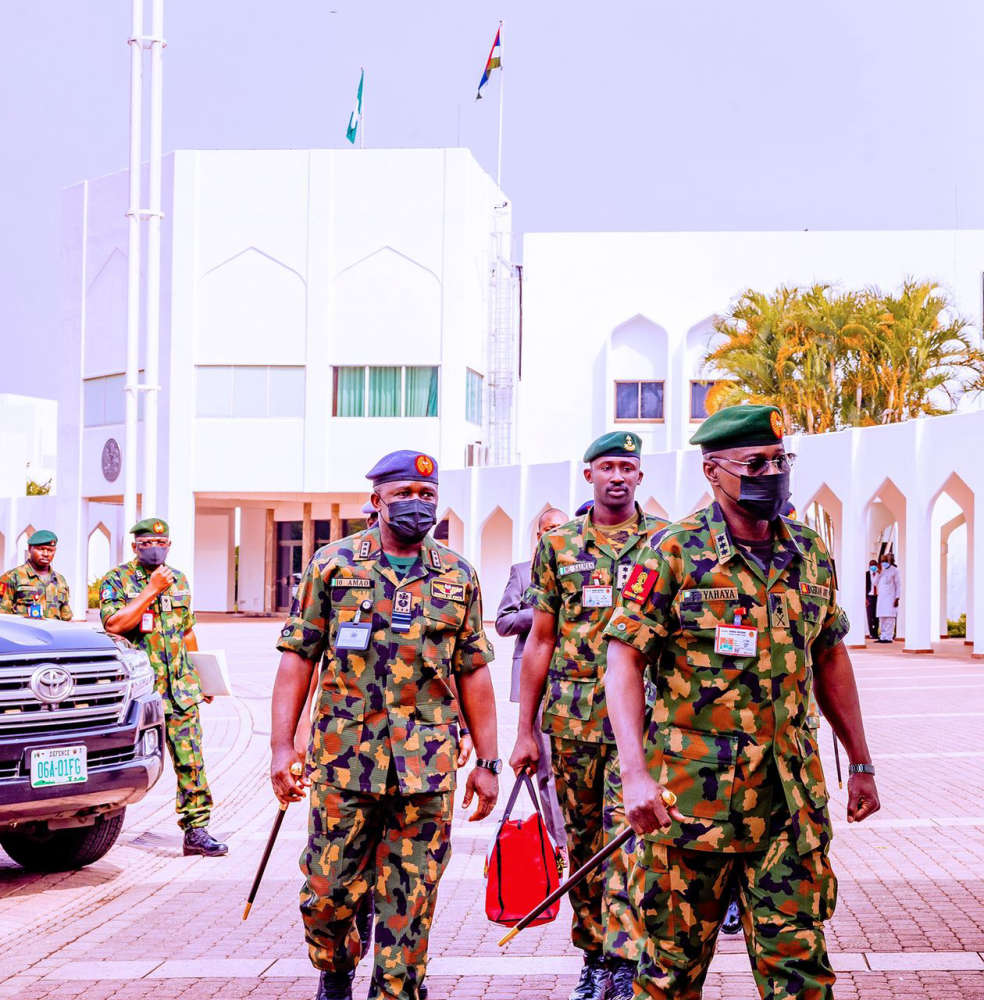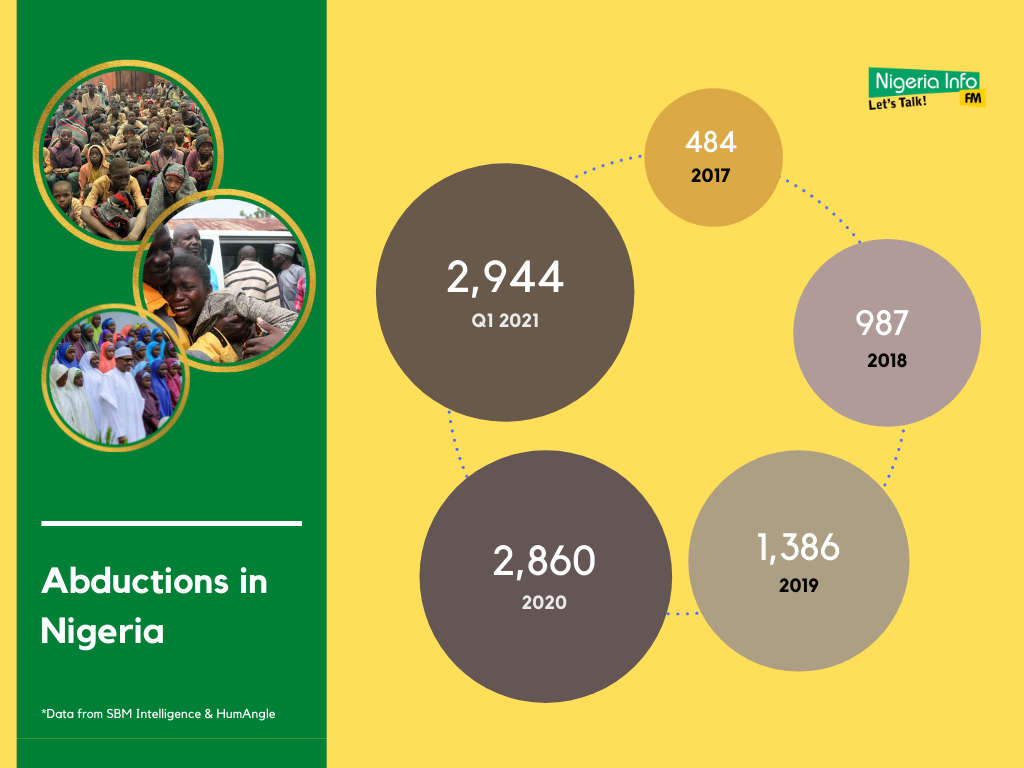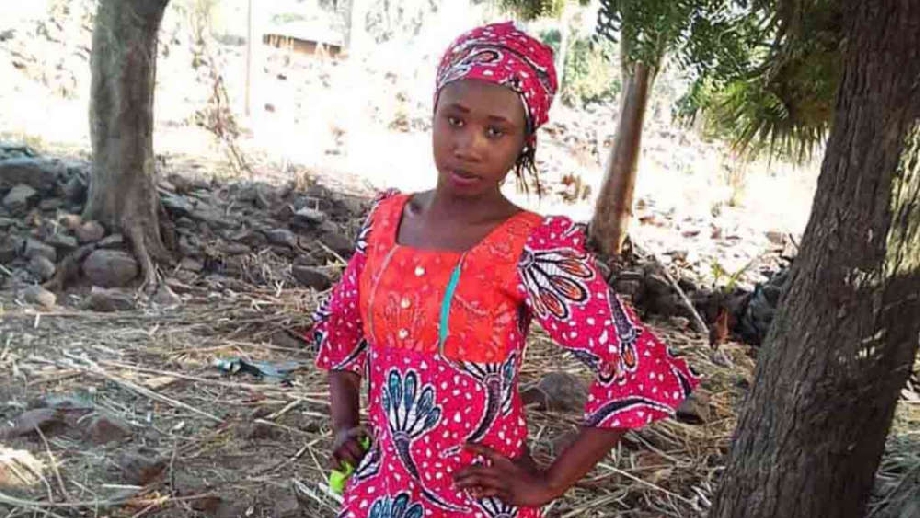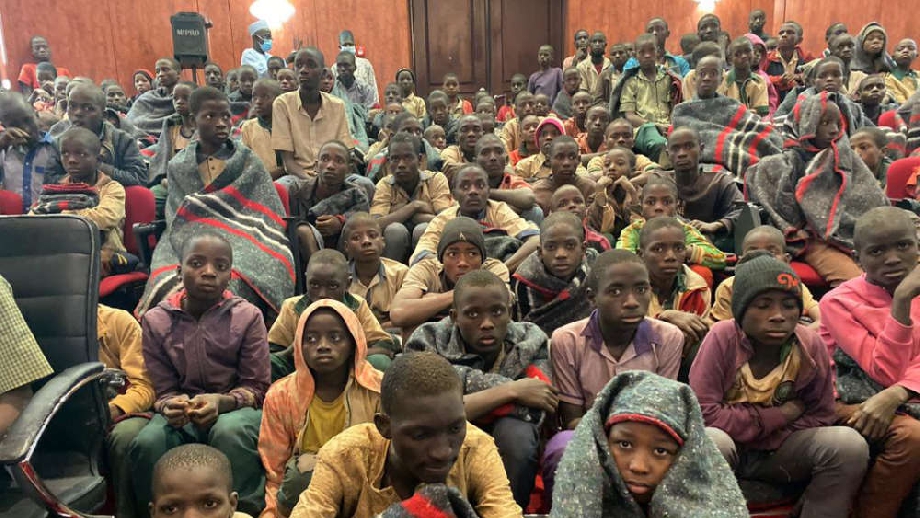
Nigeria’s President Muhammadu Buhari, Vice President Yemi Osinbajo, National Security Adviser (NSA),Babagana Monguno, security chiefs, and some cabinet ministers gathered in the Council Chambers at the Statehouse on Thursday for an all-important meeting, amid worsening insecurity in the country.
The National Security Council meeting took place a month after scores of people were kidnapped on a train in the North-Western State of Kaduna, which has become a hotbed of killings in the last year.
The abducted persons were counted as the lucky ones as seven people on the train were killed after the track was blown up by terrorists loosely called bandits.
At the Abuja meeting, President Buhari directed security chiefs to ensure the immediate and safe rescue of all persons currently held captive in Nigeria.

“The president is using that (Kaduna train attack) as a reference point to let the security agencies know that they have an obligation to get everybody, every innocent soul that is in captivity out of captivity,” Mr. Monguno said.
“Now, the way and manner in which they will be rescued is beyond me. It’s not something I’m willing to disclose, because that in itself can become a springboard for compromising whatever effort will be put in place,” he concluded.
Abductions Increasing in Nigeria
In April 2014, 276 students of Government Girls’ Secondary School in Chibok, a sleepy town in North-Eastern Borno State were kidnapped, a situation that shocked Nigerians and brought global attention to insecurity in the country.
It led to the Bring Back Our Girls movement, which organised protests across the country to pressure the Nigerian government into rescuing the girls.

Not a few people believe that the inability of the federal government to stop the Chibok attack or safely rescue the all-female students led to the then president, Goodluck Jonathan losing the 2015 election.
Security was expected to get better under President Muhammadu Buhari, a retired general, but that has not been the case.
If the rate of abductions is used as an indicator, then the state of security in Nigeria has become worse than it ever was.
484 kidnapping cases were reported across Nigeria in 2017 alone, according to HumAngle’s analysis of data collected through the Nigeria Security Tracker (NST).
That number increased to 987 the following year, then 1,386 in 2019, and 2,860 in 2020.
The figure grew even further in 2021.
HumAngle tracked 2,944 reported abductions in the first half of the year alone, while SBM Intelligence reported 2,371 in the same period.
That translates to about 13 persons kidnapped daily between 1 January and 30 June 2021.

According to the SBM Intelligence report, N10 billion ($19.96 million as of June 30) was demanded as ransom for the kidnap victims in the six months.
Niger State recorded the highest number of abducted persons, with 643 victims in 28 incidents, followed by Zamfara State with 519 victims in seven incidents.
Mass School Abductions
Particularly disturbing is the mass abduction of students.
110 schoolgirls were kidnapped by Boko Haram from the Government Girls’ Science and Technical College in Dapchi, Yobe State in 2018.
Five of the girls died on the day they were abducted, while the rest have been released except Leah Sharibu who refused to convert from Christianity to Islam.

Kankara, a small town in Katsina State dominated the news media in December 2020 when more than 300 students were kidnapped from a boys’ secondary school there.
The abduction was carried out by gunmen on motorcycles who operated for more than an hour and took the students to a forest in Zamfara State.
344 of the boys were released five days later following negotiations between the kidnappers and the Katsina and Zamfara State governments.

More than 10 mass school abductions have been carried out since then, most of them in North-Western Nigeria, involving more than 1,000 students.


